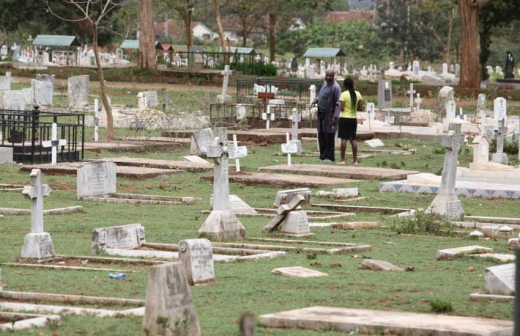News
Nairobi to Relocate Cemetery Operations to Kamiti Prison Grounds as Lang’ata Reaches Breaking Point
The move signals a pragmatic shift in approach after years of failed attempts to secure alternative burial grounds.

Nairobi County government has secured 150 acres of land to establish new cemeteries, with the bulk of the space coming from a 100-acre allocation at Kamiti Prison, as authorities scramble to address the chronic shortage of burial space that has plagued the capital for over two decades.
The acquisition, which also includes 50 acres at Embakasi Garrison, represents the county’s most significant move yet to ease pressure on the overcrowded Lang’ata Cemetery, which was officially declared full in 2001 but continues to operate as the city’s primary burial ground.
Chief Officer for Public Health Tom Nyakaba, addressing members of the Nairobi County Assembly, confirmed that both sites are currently being prepared for public use.
The development comes as Lang’ata Cemetery continues to handle approximately 30 burials per week, forcing families into increasingly desperate measures including shallow graves and alternative burial practices.
“We have secured 100 acres at Kamiti and 50 acres at Embakasi Garrison to serve as new burial sites. These spaces are being prepared and will be ready for use shortly,” Nyakaba told the assembly committee.
The move signals a pragmatic shift in approach after years of failed attempts to secure alternative burial grounds.
Previous efforts have been marred by scandal and bureaucratic obstacles, most notably the 2009 Mavoko land purchase that cost the county millions in a high-profile corruption case.
Despite its official closure status, Lang’ata Cemetery remains the preferred choice for many Nairobi families due to its central location and accessibility via public and private transport networks.
This preference has created a bottleneck that the county hopes the new facilities will help alleviate.
The county currently operates nine cemeteries, most under community management, including sites at Forest Road, Pangani, Mutuini, Uthiru, Southlands, Kariokor Christian, Ruai, and land near the National Police Service. Plans are underway to bring these facilities under unified county oversight to improve efficiency and coordination.
Previous initiatives to expand burial capacity have encountered significant obstacles. Proposals to purchase land in Kajiado County and acquire forest land adjacent to Lang’ata failed due to legal, financial, and regulatory complications.
Talks between the now-defunct Nairobi Metropolitan Services and the Kenya Forest Service in 2021 similarly yielded no concrete results.
The persistent shortage has forced some families to consider cremation, though this practice has not gained widespread acceptance in Kenya’s predominantly Christian and Muslim communities.
The new facilities at Kamiti and Embakasi represent the county’s most tangible progress in addressing the burial space crisis that has affected thousands of families over the past two decades.
County officials have not yet announced opening dates for the new cemeteries, but the acquisition marks a significant step toward resolving one of Nairobi’s most pressing public health challenges.
Kenya Insights allows guest blogging, if you want to be published on Kenya’s most authoritative and accurate blog, have an expose, news TIPS, story angles, human interest stories, drop us an email on [email protected] or via Telegram
-

 Grapevine2 weeks ago
Grapevine2 weeks agoAlleged Male Lover Claims His Life Is in Danger, Leaks Screenshots and Private Videos Linking SportPesa CEO Ronald Karauri
-

 Lifestyle2 weeks ago
Lifestyle2 weeks agoThe General’s Fall: From Barracks To Bankruptcy As Illness Ravages Karangi’s Memory And Empire
-

 Grapevine7 days ago
Grapevine7 days agoRussian Man’s Secret Sex Recordings Ignite Fury as Questions Mount Over Consent and Easy Pick-Ups in Nairobi
-

 Investigations4 days ago
Investigations4 days agoMulti-Million Dollar Fraud: Three Kenyans Face US Extradition in Massive Cybercrime Conspiracy
-

 Economy3 days ago
Economy3 days agoIran Demands Arrest, Prosecution Of Kenya’s Cup of Joe Director Director Over Sh2.6 Billion Tea Fraud
-

 Investigations2 weeks ago
Investigations2 weeks agoEpstein’s Girlfriend Ghislaine Maxwell Frequently Visited Kenya As Files Reveal Local Secret Links With The Underage Sex Trafficking Ring
-

 News2 weeks ago
News2 weeks agoState Agency Exposes Five Top Names Linked To Poor Building Approvals In Nairobi, Recommends Dismissal After City Hall Probe
-

 News2 days ago
News2 days agoTHE FIRM IN THE DOCK: How Kaplan and Stratton Became the Most Scrutinised Law Firm in Kenya

















